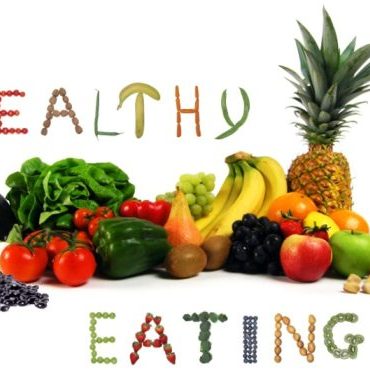 Don’t Fear – Our Resident Nutritionist Is Here!
Don’t Fear – Our Resident Nutritionist Is Here!
My main PCOs symptom is depression, what are the best treatments?
Being diagnosed with PCOS can be devastating. You have to find the best means for controlling depression. You must make diet and lifestyle changes and your mood will start to improve and stabilise. Don’t get me wrong, you will still sometimes wake up irritable for no reason but those days will get fewer. Let’s have a look at some research about PCOS and Depression.
It seems that there is a strong link between androgen excess, insulin resistance and depression. One study found that women who suffer the symptoms of androgen excess (which are pretty much the symptoms of PCOS) are more likely to struggle with depression than women without PCOS. They also found that carbohydrate craving, excess hair and weight gain, impact our well-being and interfere with daily life. Another article I thought was really interesting explores the link between depression and insulin resistance. We know that PCOS is primarily thought to be an endocrine disorder with irregularities in insulin and carbohydrate processing. Not all women with PCOS are insulin resistant but many are. So, if you do have insulin resistance, you are also more likely to suffer from depression or mood disorders. So, the bottom line is that if you are suffering from depression with PCOS, you are not alone and it is not all in your head. Depression is another facet of this multi-faceted syndrome. Now that I have established that depression is indeed linked to PCOS, let’s look at how it can be treated so that you can live the life of joy, colour and sunshine you are meant to live.
Before getting into specifics, I want to share with you a story of a woman who suffered from severe depression. She also had untreated PCOS. She was on anti-depressants for a year and saw little improvement in her mood. Her mood only normalised when her PCOS was treated and she remained stable even when she stopped taking anti-depressants. The moral of the story is that it is important to treat your PCOS. I’m not saying that you should not take anti-depressants if you are depressed – you need to be led by your doctor (remember that I am not a doctor and you need to seek medical help if you are suffering from depression). I am saying that treating your PCOS may hold an invaluable key to overcoming your depression. Lifestyle changes are recommended as the first course of treatment in the management of PCOS. By lifestyle changes, we often refer to a change in diet and more regular exercise. Well, lifestyle changes have also been shown to have a significant improvement in mood and depression in women with PCOS. One study found that if women followed a PCOS diet and exercised, they would see a significant improvement in their mood as well as other symptoms of PCOS. Somehow diet seems to be the foundation of any sort of intervention! If you can lower insulin levels and improve insulin sensitivity; you should be able to improve androgen levels. This will lead to improvement in all of your PCOS symptoms, including depression. Here’s another thing you may find interesting: recent research has shown that following a low carb, high protein (LCHP) diet improves mood significantly more than following a low protein, high carb (LPHC) diet. The researchers divided women into two groups, one following the LPHC diet and the other following an LCHP diet. The women followed the diet for 16 weeks. What is key here is that neither group lost weight so improvement in their mood wasn’t down to that. Maybe it had to do with the fact that insulin levels tend to be lower and more manageable on a high protein, low carb diet?
Some supplements may help. Omega 3 – has been shown to lower testosterone in women with PCOS and improved testosterone levels = improved mood.
Inositol – Important for the metabolism of glucose and women have shown improve insulin sensitivity and a decrease in free testosterone levels.
Vitamin D – The sunshine vitamin is important in insulin sensitivity and mood. Eating a good PCOS diet and taking regular supplements seems to help depression and keep mood more stable. Work on doing more exercise to improve PCOS symptoms even more.
If you are suffering from PCOS and depression, it really may be worth your while changing your diet and making sure you’re doing some exercise, as well as taking your supplements. It is possible to find your spring in your step and see colour in your days!
Are all additives harmful?
No, in fact, some additives may even be good for you. Vitamins and minerals are added to some foods to help increase our daily intake. Vitamin D which aids bone, muscle and brain health, is added to dairy food. Folate is added to cereals. It is essential for metabolism as well as being vital for pregnant women to protect against neural tube defects in unborn babies. In addition, Vitamins E and C are powerful antioxidants that help to keep food fresh and can support your immune system and healing. These vitamins may be added to margarine, dips, juice, bread and cereals.
Is MSG really toxic?
Monosodium Glutamate or MSG has had a bad rap for causing reactions such as IBS and migraines. In fact, MSG is one of a widely used group of flavour enhancers called glutamates which are found in many packet foods like soups, flavoured noodles, Asian sauces and savoury snacks as they enhance the ‘umami’ or hearty flavour. For most people, MSG and other glutamates are harmless. However, glutamates may cause problems for a small number of people, so if you are sensitive to glutamates, check labels for the numbers 621-635 and try to reduce how much you have.
Do diet soft drinks cause cancer?
Artificial sweeteners, such as saccharin and aspartame, have been linked to cancer in animal studies, but the risk to humans has not been confirmed. In fact, reviews of the scientific evidence have to lead to their continued approval for use in Australia by FSANZ and many regulatory bodies across the world. In saying that, there is a small minority of people with a rare condition that makes them unable to digest aspartame. Many soft drinks and even other ‘light drinks’ from cordials to fruit-flavoured drinks are now being sweetened by flavourings that are derived from the stevia plant, which passes as a ‘natural sweetener.
I am worried about my eyesight and the risk of macular degeneration as I age. Can my diet help keep my eyes healthy? If so, what should I be eating?
Age-related macular degeneration (AMD) occurs when the macula (the centre of the retina) deteriorates, causing vision loss in the centre of your field of vision. A healthy diet can definitely help reduce your risk. Studies have shown eating lots of the antioxidants lutein and zeaxanthin are key. These are found in dark green, leafy veggies, such as kale, spinach, and silverbeet and also in peas, pumpkin, Brussel sprouts, broccoli, corn and beans. Other ‘eye-healthy nutrients include zinc (found in oysters, nuts and legumes), vitamin E (from nuts and vegetable oils), vitamin C (in citrus fruit, berries and tomatoes), selenium (in Brazil nuts) and omega-3’s (found in oily fish like tuna and salmon).

